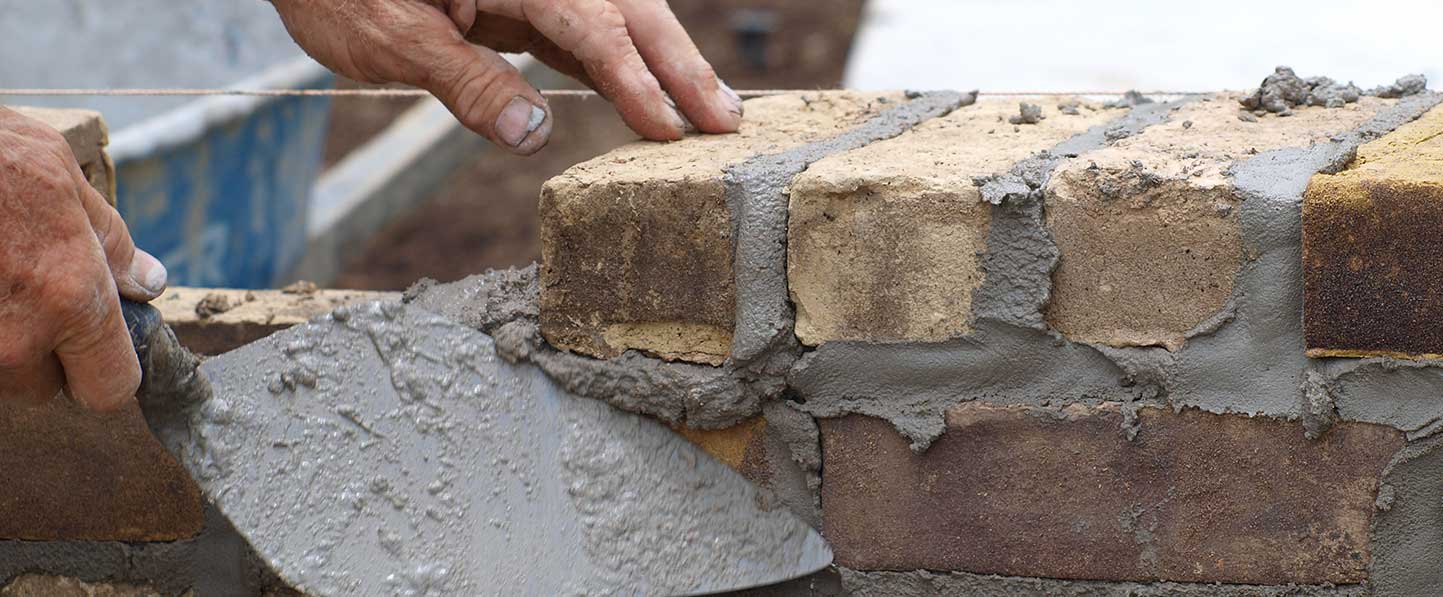Opening the Keys of Lasting Masonry Construction Practices for Eco-Friendly Structures
Amongst the myriad methods to environment-friendly building, lasting masonry construction stands out as a reliable and resilient method that holds a riches of untapped potential. From the choice of products to ingenious building methods, the keys to achieving sustainability within masonry building are multifaceted and interesting.
Benefits of Lasting Stonework Building And Construction
Welcoming lasting stonework building practices not only minimizes environmental influence yet also uses lasting economic advantages to builders and communities. By using materials like recycled blocks, obstructs, and rocks, builders can dramatically decrease the carbon impact of their jobs while promoting source performance. Furthermore, lasting masonry building strategies, such as correct insulation and thermal mass residential or commercial properties, can enhance power effectiveness within structures, resulting in reduced functional costs in time.
Furthermore, the sturdiness and strength of masonry structures add to lasting economic advantages. Buildings created making use of sustainable masonry methods typically call for much less repair and maintenance, equating to set you back financial savings for building contractors and property owners. The longevity of masonry products also makes sure that frameworks stay steady and safe, reducing the need for regular restorations or substitutes.
Eco-Friendly Masonry Products
Making use of environment-friendly stonework products is a pivotal action in the direction of boosting the sustainability of building and construction practices and minimizing environmental influence while taking full advantage of long-lasting financial advantages. Lasting masonry products are sourced, created, and utilized in a way that reduces total environmental impact. Lasting concrete obstructs integrate recycled accumulations and may feature enhanced insulation residential properties, contributing to power performance in buildings.
Furthermore, all-natural products like adobe, rammed planet, and straw bales offer excellent thermal mass residential or commercial properties, minimizing the requirement for heating and cooling down power. These products are typically in your area available, advertising regional economic climates and lowering transportation-related carbon exhausts. By choosing environmentally friendly stonework products, construction projects can substantially decrease their environmental impact and contribute to the creation of healthier, more lasting constructed environments.
Energy-Efficient Masonry Strategies
Energy performance plays an essential duty in enhancing the sustainability of masonry building practices. By implementing energy-efficient masonry strategies, building contractors can significantly minimize the total power usage of a structure, leading to lower functional prices and a smaller ecological impact. One crucial energy-efficient stonework strategy is making use of thermal mass, which includes incorporating thick materials like concrete or block right into the building's framework to take in and keep warmth. This helps manage interior temperature levels, lowering the demand for mechanical heating and cooling systems.

Advancements in Sustainable Masonry
Current innovations in sustainable masonry methods have brought around ingenious strategies that are improving the building industry. One such development is the development of self-healing concrete, which uses bacteria embedded within the concrete to heal cracks these details autonomously. This advancement not only decreases maintenance expenses however additionally enhances the resilience of masonry structures, adding to their sustainability.
One more notable innovation is making use of recycled accumulations in stonework construction - masonry contractor. By including materials such as smashed ceramic waste or recycled glass into concrete mixes, builders can reduce the ecological influence of building and construction jobs while maintaining architectural integrity. This technique not only draws away waste from garbage dumps however additionally conserves all-natural resources, making it an essential improvement in sustainable masonry building
In addition, the assimilation of digital design tools, such as Structure Info Modeling (BIM), is reinventing the means masonry frameworks are planned and constructed. BIM allows for more exact computations, reduced material wastage, and improved power effectiveness, inevitably bring about even more lasting building practices. These technologies jointly symbolize an encouraging future for lasting stonework building and construction in infinity car the period of environmentally friendly buildings.
Future Trends in Masonry Sustainability
With the ingenious strides made in sustainable masonry practices, the future fads in stonework sustainability are poised to more revolutionize the building industry. Among the essential trends shaping the future of stonework sustainability is the raised assimilation of innovation. Innovations such as Structure Information Modeling (BIM) and digital fact simulations are being made use of to optimize stonework construction processes, bring about decreased material waste and enhanced power effectiveness in buildings.
Moreover, the growth of unique lasting materials is readied to play a substantial role in improving the eco-friendliness of stonework building and construction. masonry contractor. Advancements like self-healing concrete, recycled accumulations, and bio-based binders are acquiring grip for their ability to decrease ecological impact while maintaining architectural integrity

Conclusion
In verdict, lasting stonework building techniques supply various advantages for eco-friendly buildings. By using environment-friendly materials and energy-efficient techniques, masonry can add to an extra sustainable constructed atmosphere. Developments in lasting stonework are continually being established to better enhance the used car places near me ecological efficiency of structures. Looking towards the future, the fad of stonework sustainability is expected to grow, leading to even more environmentally friendly and energy-efficient construction practices in the years to find.